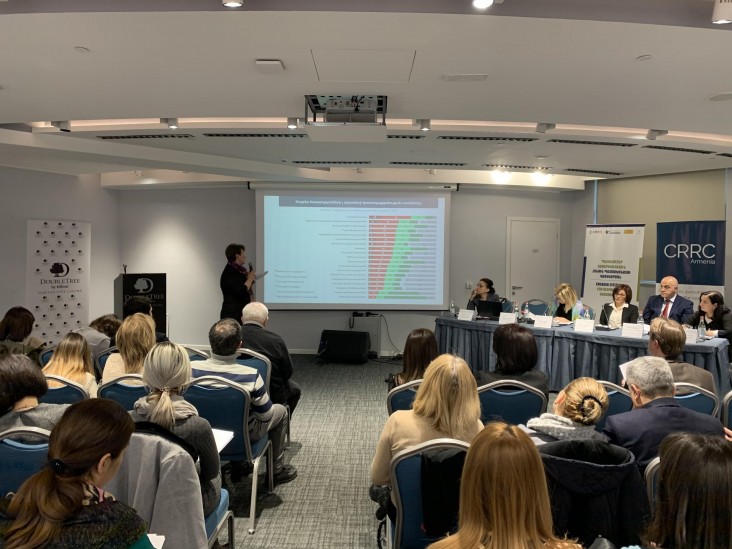You are viewing:
Archived Content
Information released online before January, 2021.
You are viewing:
Information released online before January, 2021.
Note: Content in this archive site is NOT UPDATED, and external links may not function. External links to other Internet sites should not be construed as an endorsement of the views contained therein.
You are entering the 2017-2020 Archive for the
United States Agency for International Development web site.
If you are looking for current information, visit www.usaid.gov.

On February 21, USAID’s “Engaged Citizenry for Responsible Governance” project presented the results of its recently conducted Household Corruption Perception Survey, which polled citizens across Armenia on their perceptions of the prevalence of different types of corruption and their level of awareness of anti-corruption initiatives and institutions. The survey found that only 6% of respondents believed that corruption is the top priority to be addressed in Armenia, and only 36% of respondents believed that corruption is widespread, compared with 84% in 2018, prior to the velvet revolution. However, despite this overall decrease, 22% of respondents reported an increase in the prevalence of nepotism. In addition, although there is a general intolerance towards corruption, with 81% of respondents agreeing that corruption should be eliminated, certain types of corruption continue to be tolerated, such as “thank you” gifts to teachers and doctors and donations by businesses to public foundations. The survey also found low willingness among citizens to report corruption and low awareness of key government institutions responsible for anti-corruption. To address these gaps, USAID is supporting the Government of Armenia’s Corruption Prevention Commission and civil society partners to raise public awareness and intolerance of corruption and strengthen public oversight and reporting.
See Survey Publications here: https://transparency.am/en/publications/co-authored
Comment
Make a general inquiry or suggest an improvement.